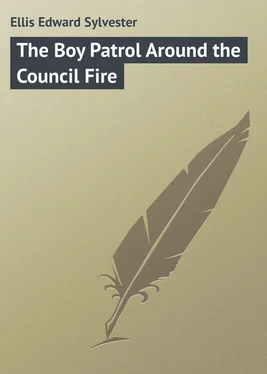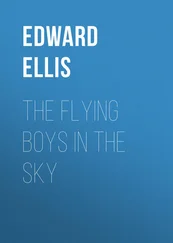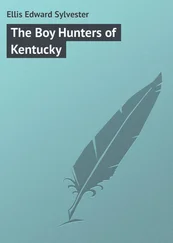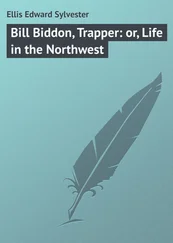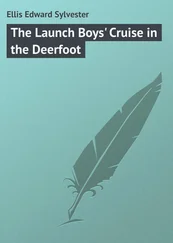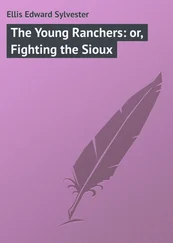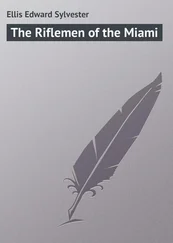Edward Ellis - The Boy Patrol Around the Council Fire
Здесь есть возможность читать онлайн «Edward Ellis - The Boy Patrol Around the Council Fire» — ознакомительный отрывок электронной книги совершенно бесплатно, а после прочтения отрывка купить полную версию. В некоторых случаях можно слушать аудио, скачать через торрент в формате fb2 и присутствует краткое содержание. ISBN: , Жанр: foreign_prose, foreign_children, на английском языке. Описание произведения, (предисловие) а так же отзывы посетителей доступны на портале библиотеки ЛибКат.
- Название:The Boy Patrol Around the Council Fire
- Автор:
- Жанр:
- Год:неизвестен
- ISBN:http://www.gutenberg.org/ebooks/43218
- Рейтинг книги:3 / 5. Голосов: 1
-
Избранное:Добавить в избранное
- Отзывы:
-
Ваша оценка:
- 60
- 1
- 2
- 3
- 4
- 5
The Boy Patrol Around the Council Fire: краткое содержание, описание и аннотация
Предлагаем к чтению аннотацию, описание, краткое содержание или предисловие (зависит от того, что написал сам автор книги «The Boy Patrol Around the Council Fire»). Если вы не нашли необходимую информацию о книге — напишите в комментариях, мы постараемся отыскать её.
The Boy Patrol Around the Council Fire — читать онлайн ознакомительный отрывок
Ниже представлен текст книги, разбитый по страницам. Система сохранения места последней прочитанной страницы, позволяет с удобством читать онлайн бесплатно книгу «The Boy Patrol Around the Council Fire», без необходимости каждый раз заново искать на чём Вы остановились. Поставьте закладку, и сможете в любой момент перейти на страницу, на которой закончили чтение.
Интервал:
Закладка:
“A few days later, however, another council agreed that the only course possible was to leave the city and take position on Harlem Heights. The public stores were to be sent to Dobbs Ferry and the sick carried across to New Jersey. The main army would march northward and General Putnam would stay in New York with four thousand troops. If he found his position untenable, he was to follow Washington.
“At this council the commander-in-chief said:
“‘I know absolutely nothing of the intentions of the enemy. Two ships-of-war have gone up the East River and others will follow. Their troops are active everywhere, but I cannot even guess what they mean to do. Until I have knowledge on that point, I am helpless.’
“In his distressful dilemma, Washington wrote to General Heath at Kingsbridge, entreating him and General Clinton to aid in securing the indispensable information. He told them to spare no expense or pains, adding that not since the beginning of the war had he been so uneasy.
“Shortly after, Washington called his officers together again. He told them he was still without the least knowledge of the plans of the enemy. Only one recourse remained to him: – that was to send a spy into the British lines in quest of the information. Such a man must be clear-headed, cool, tactful, a good draughtsman and of undaunted courage. He appealed to Lieutenant-Colonel Knowlton (soon to die the death of a patriot) to find him the person. Knowlton laid the request before a conference of his officers, and asked whether any one was willing to volunteer.
“A spy is very different from a scout and in the eyes of most people is the most contemptible of creatures, for the essence of his duty is treachery. To succeed he must play the hypocrite and betray confidence at every turn. In such scorn is a spy held by civilized nations that he is not permitted to die the death of a soldier, but is hanged like the worst of felons.
“The request of Knowlton was succeeded by an indignant hush. The bronzed faces flushed as if under the sting of an insult, and the officers dared not trust themselves to reply. In the midst of the strained silence, a clear voice spoke:
“‘I will go!’
“Every eye was turned in astonishment on the speaker. He was a young man of athletic figure and handsome face, whose paleness was due to a severe illness from which he was hardly yet recovered. He wore the uniform of a captain, and in the whole army there was not a braver or more beloved officer than he. His words caused a painful shock to his comrades, who, believing a disgraceful death was certain to follow his mad attempt, closed around him and protested in the most forceful language at their command. To all their appeals he smiled and shook his head.
“‘Gentlemen, it is useless. I am touched by your friendship, but all the arguments you bring forward have already been considered by me. A spy is looked upon with loathing, but the necessity of one’s country makes every kind of service honorable. I am not seeking promotion or pecuniary reward. I go to serve our cause, for which I am ready at any time to give my life.’
“It was not the words alone, but their emphasis which silenced his comrades. They saw it was useless to appeal to one whose patriotism throbbed and burned through his entire being, and inspired every thought, word and deed.
“And who was the young officer who thus took his life in his hands that he might serve the cause of liberty?
“He was Captain Nathan Hale, born in Connecticut, in 1755, the sixth child among twelve, of the strictest Puritan parents. His mental and athletic gifts were wonderful. None of his playmates could approach him in running, leaping, swimming, throwing, wrestling and the feats of strength and agility so much admired by all rugged American youths. Many a time he would place a row of empty barrels beside one another and with little effort spring out of one into the other until he had completed the series. Standing beside a fence whose top rail touched his chin, he would rest one hand lightly on it and vault over as easily as a deer. One day, while a student at Yale, in a contest with his friends, he made so prodigious a leap that the bounds were carefully marked and preserved for years, the admiration and despair of all subsequent students.
“But, extraordinary as was Nathan Hale’s athletic skill, his mental powers were more brilliant, while his social qualities made him a favorite with all. His simplicity, unfailing good nature and readiness to help others, no matter whom, justified the remark: ‘Every man, woman and child who knew him were his friends and among them not one was ever an enemy.’
“He entered Yale College when fifteen years old and was graduated in due course with the highest honors. This fact attests his scholarship and ability. He was easily the most popular student, not only with his classmates, but with the tutors and the faculty of the college and the best families in New Haven.
“Hale left college in 1773 and engaged in teaching. In 1774, he was made preceptor in the Union Grammar School at New London. The building is carefully preserved and is well worth a visit. The institution was of a high order, and its students were not only grounded thoroughly in an English education, but were prepared for college. Hale was its first preceptor, and his success was pronounced from the beginning. Boys like you have admired and always will admire physical prowess, and there was never one among them all who could approach their instructor in that respect. What a star football player he would have made in these later days! Added to this ability, his mental and social gifts and his profound religious nature explain his marked success among the youth of New London.
“On the 21st of April, 1775, a rider dashed into the little town upon his foaming horse and shouted the news of Lexington and Concord. Pausing only long enough to rest his panting steed and to snatch a bit of food, he thundered away for New York with his momentous tidings.
“Instantly New London flamed with excitement. The bells were rung and a ‘town meeting,’ the inalienable recourse of all New Englanders, was called at the court house for early candle light. Seemingly the whole town crowded thither. There were burning speeches and Hale’s was the most impassioned of all.
“The talking being over, he wrote down his name as a volunteer. Others caught the contagion and elbowed one another in their eagerness to be among the first to enlist. The next morning, when the boys came together at the call of the school bell, their teacher offered up an earnest prayer for the success of the great struggle that had opened, commended his pupils to the care of their Heavenly Father, shook the hands of each lad in turn, uttered a few words of advice, and set out for Cambridge. Some time later, he came back to New London and resumed his duties in the school.
“The young patriot, however, could not remain idle so long as his beloved country needed her sons. He enlisted as a lieutenant in Colonel Charles Webb’s regiment, which had been raised by order of the General Assembly of Connecticut for home defense and, if needed, for national protection. In September, the regiment marched to Cambridge and took part in the siege of Boston. Upon the departure of the British for Halifax, the American army went to New York. Some months later, when the team of his company’s enlistment expired, Hale offered to give the men his month’s pay if they would stay a little while longer.
“The Continentals had been in New York but a short time when Hale became the hero of a daring exploit. A British supply vessel lay in the East River under the protection of a frigate of sixty-four guns. He obtained permission to attempt the capture of the sloop. Selecting a few men as brave as himself, they stepped into a whale boat, rowed silently out late at night and drew up beside the vessel undetected by the watch. Like so many phantoms, the boarders climbed over the side, seized the sentinel, fastened the crew below the hatches, lifted anchor and took the prize into Coenties Slip, without raising the slightest alarm. Day was breaking when Hale, holding the helm, was recognized by his friends, who received him with hurrahs. For once at least his comrades enjoyed a ‘square meal.’
Читать дальшеИнтервал:
Закладка:
Похожие книги на «The Boy Patrol Around the Council Fire»
Представляем Вашему вниманию похожие книги на «The Boy Patrol Around the Council Fire» списком для выбора. Мы отобрали схожую по названию и смыслу литературу в надежде предоставить читателям больше вариантов отыскать новые, интересные, ещё непрочитанные произведения.
Обсуждение, отзывы о книге «The Boy Patrol Around the Council Fire» и просто собственные мнения читателей. Оставьте ваши комментарии, напишите, что Вы думаете о произведении, его смысле или главных героях. Укажите что конкретно понравилось, а что нет, и почему Вы так считаете.
